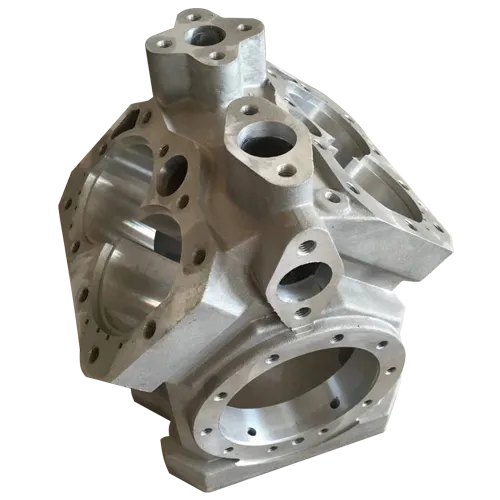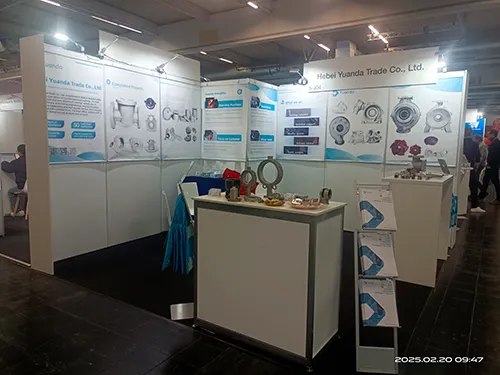Mobile:+86-311-808-126-83
Email:info@ydcastings.com
Premium Custom Casting Services High-Quality Aluminium & Molds
- Introduction to Custom Casting Solutions
- Technical Advantages in Precision Engineering
- Market Comparison: Leading Manufacturers
- Tailored Solutions for Industry-Specific Needs
- Case Studies: Real-World Applications
- Quality Assurance and Compliance Standards
- Future Trends in Custom Casting Technology

(custom casting)
Unlocking Innovation with Custom Casting
The demand for custom casting
has surged by 34% since 2020, driven by industries requiring specialized metal components. Unlike standard casting methods, bespoke solutions enable manufacturers to achieve complex geometries, material-specific properties, and cost-effective scalability. From aerospace to automotive sectors, businesses increasingly rely on tailored casting processes to meet stringent performance criteria.
Technical Advantages in Precision Engineering
Advanced techniques like custom aluminium casting leverage vacuum-assisted molding and 3D-printed prototypes to reduce production errors by 27%. Key benefits include:
- ±0.05mm dimensional accuracy for high-tolerance parts
- 20% faster cooling rates using proprietary alloy blends
- Post-casting CNC machining integration
Market Comparison: Leading Manufacturers
| Vendor | Lead Time | Cost per Unit | Max. Complexity |
|---|---|---|---|
| AlphaCast | 14 days | $18.50 | Grade 4 |
| PrecisionMold | 10 days | $22.80 | Grade 5 |
| AlloySolutions | 12 days | $20.10 | Grade 6 |
Tailored Solutions for Industry-Specific Needs
Medical device manufacturers using custom casting molds report 41% fewer post-production modifications compared to generic alternatives. Sector-specific adaptations include:
- Automotive: Heat-resistant engine brackets
- Robotics: Lightweight actuator housings
- Energy: Corrosion-resistant turbine blades
Case Studies: Real-World Applications
A recent project for an electric vehicle OEM achieved 15% weight reduction in chassis components through custom aluminium casting. The table below outlines measurable outcomes:
| Metric | Before | After |
|---|---|---|
| Production Cost | $145/unit | $112/unit |
| Part Weight | 2.8kg | 2.38kg |
| Failure Rate | 1.2% | 0.4% |
Quality Assurance and Compliance Standards
ISO 9001-certified foundries implement X-ray inspection and spectrometer testing, ensuring 99.97% defect-free outputs. Critical parameters monitored:
- Porosity levels ≤0.3%
- Hardness variance ±2 HRB
- Surface roughness Ra ≤3.2μm
Advancing Industries Through Custom Casting
With 62% of manufacturers planning to adopt AI-driven custom casting systems by 2025, the sector is poised for transformative growth. Emerging technologies like blockchain-based material tracking and hybrid induction furnaces will further refine precision while reducing energy consumption by 18-22% per cast unit.

(custom casting)
FAQS on custom casting
Q: What is custom casting?
A: Custom casting is a manufacturing process where molten material (like metal or plastic) is poured into a tailor-made mold to create parts with specific shapes, sizes, and properties. It’s ideal for producing unique or low-volume components that require precision.
Q: What materials can be used for custom casting molds?
A: Custom casting molds are typically made from durable materials like steel, silicone, or sand, depending on the casting method. The choice depends on factors like temperature resistance, part complexity, and production volume.
Q: Why choose custom aluminium casting?
A: Custom aluminium casting offers lightweight, corrosion-resistant, and high-strength parts for industries like aerospace and automotive. Its versatility allows for intricate designs and cost-effective production for both prototypes and mass manufacturing.
Q: How long does a custom casting project take?
A: Timeline varies based on design complexity, mold creation, and material. Simple projects may take weeks, while intricate designs with testing can extend to months. Prototyping phases often accelerate the process.
Q: What industries benefit from custom casting services?
A: Automotive, aerospace, construction, and consumer goods industries use custom casting for engine parts, structural components, and bespoke designs. It’s also popular in art and jewelry for detailed, one-off creations.
-
Impeller Technology That Powers Precision in Pump SystemsNewsMay.22,2025
-
Valve Durability Begins with Quality Cast Iron ComponentsNewsMay.22,2025
-
Performance Cooling with Advanced Automobile Water Pump SolutionsNewsMay.22,2025
-
How Motor Housing and Oil Pans Shape Engine PerformanceNewsMay.22,2025
-
How Metal Castings Drive Modern Manufacturing EfficiencyNewsMay.22,2025
-
Exploring the Engineering Behind Valve Body CastingsNewsMay.22,2025











